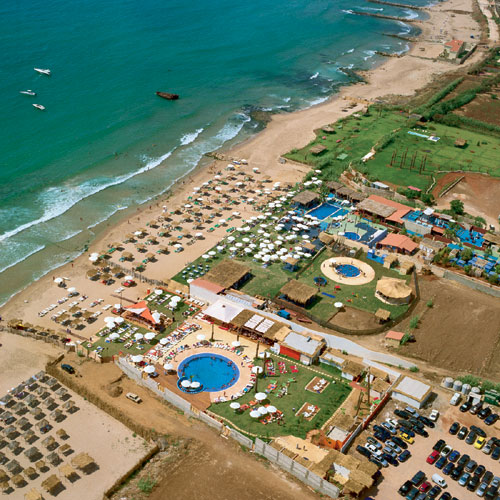 Lebanon’s tourism minister has said that the security situation this year had scared off tourists just rediscovering the former war zone. Joseph Sarkis said the number of visitors was down by up to 20% so far this year, after the killing of former Prime Minister Rafik al-Hariri in February sent Lebanon into its worst crisis since the 1975-1990 civil war. A series of bombings have since shaken seaside and mountain resort towns as well as a Beirut nightspot, causing few deaths but scaring ordinary Lebanese as well as tourists. A journalist and a politician were also killed in recent months, adding to the climate of fear.”What is happening today is the cumulative result of a series of security incidents that began six months ago or even before the assassination of Prime Minister Hariri,” he said.The result is that numbers are down … In comparison to last year, when we had around 1.5 million … visitors, I expect this year, 2005, to be some 20% below. We will definitely make 1 million but probably not 1.5 million.”
Lebanon’s tourism minister has said that the security situation this year had scared off tourists just rediscovering the former war zone. Joseph Sarkis said the number of visitors was down by up to 20% so far this year, after the killing of former Prime Minister Rafik al-Hariri in February sent Lebanon into its worst crisis since the 1975-1990 civil war. A series of bombings have since shaken seaside and mountain resort towns as well as a Beirut nightspot, causing few deaths but scaring ordinary Lebanese as well as tourists. A journalist and a politician were also killed in recent months, adding to the climate of fear.”What is happening today is the cumulative result of a series of security incidents that began six months ago or even before the assassination of Prime Minister Hariri,” he said.The result is that numbers are down … In comparison to last year, when we had around 1.5 million … visitors, I expect this year, 2005, to be some 20% below. We will definitely make 1 million but probably not 1.5 million.”
Dubbed the Paris of the Orient before the civil war turned its upmarket seaside strip into a battleground for militias and its hotel towers into snipers’ nests, Beirut had begun to regain its old allure in recent years.
Planes were full and hotels booked solid last year, when around 1.3 million people visited Lebanon, many of them wealthy visitors from the Gulf, who appreciate a nearby, Arab-speaking destination, more socially liberal than its neighbours.
But many stayed away in the aftermath of Hariri’s killing, which prompted mass demonstrations that blamed Syria and resulted in its troops being pulled out of Lebanon.
The number of visitors arriving in the tiny country was down more than 35% in April, compared to the same month last year, Tourism Ministry statistics show.
Plans
The number of visitors was down around 20% in July, compared to the same month last year, Sarkis said, but August was so far looking more promising.
“But if the security situation continues all we are talking about is meaningless”
Joseph Sarkis,
Lebanon’s tourism minister |
Sarkis said he was working with other ministries as well as hotels, travel agencies and airlines to boost a sector that is a vital source of revenue for a country grappling with a $36 billion public debt, almost twice its gross domestic product.
He plans campaigns to bring back foreign tourists as well as to encourage
Lebanon‘s substantial expatriate community to visit more often and Lebanese to discover more of their own country.
“But if the security situation continues all we are talking about is meaningless,” Sarkis said.
 Lebanon’s tourism minister has said that the security situation this year had scared off tourists just rediscovering the former war zone. Joseph Sarkis said the number of visitors was down by up to 20% so far this year, after the killing of former Prime Minister Rafik al-Hariri in February sent
Lebanon’s tourism minister has said that the security situation this year had scared off tourists just rediscovering the former war zone. Joseph Sarkis said the number of visitors was down by up to 20% so far this year, after the killing of former Prime Minister Rafik al-Hariri in February sent 


